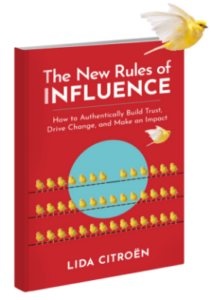This is the first in a two-part series. Mistakes 6-10 coming next week!

Whether you’re just starting out in your career or you’ve been in the job market for years, it’s easy to lose perspective, vision, and strategy over where you’re going and where you’ve been. Even the best career advice sometimes perpetuates myths that have to be dispelled.
Here, I’d like to break down a few of the biggest career mistakes people make, with some new perspective.
-
Losing Sight of Your Career (As You Focus on the Job)
Remember this dialog in Lewis Carroll’s Alice in Wonderland:
Alice: “Would you tell me, please, which way I ought to go from here?”
Cheshire Cat: “That depends a good deal on where you want to get to.”
Alice: “I don’t much care where –”
Cheshire Cat: “Then it doesn’t matter which way you go.”
When we don’t have a strategy for our work life, we often end up evaluating every job opportunity and challenge in a random vacuum. For instance, each new job offer is evaluated by the seduction of a salary increase, a more desirable working location, or even a better work environment, but not in terms of opportunity in the bigger context of our career strategy.
This decision-making process leaves a lot of our future to chance, and it removes our ability to control how our career can fulfill our dreams.
Instead of evaluating options based on the superficial perks of the job or the paycheck, try looking at each opportunity and asking yourself:
- Can I learn from this opportunity?
- Will this opportunity help me to grow?
- Is this a step in a better direction for my long-term career?
- Am I leaning into my values with this opportunity, and does this choice allow me to better position my personal brand in the way I ultimately want to be remembered?
-
Trying to Please Everyone (Love vs. Respect)
When I ask business leaders, “Is it more important for you to feel loved or respected?” I’m often surprised by the responses. I’ve interviewed and counseled many senior executives of global companies, and I used to assume their motivation would be to be respected in their industry, respected in their company, and respected among their peers. But often they tell me that they seek validation, affirmation and, in some cases, they seek love from the people they work with, report to, and who report to them.
This used to surprise me, because I assumed that leaders sought respect, but in many cases, they desire the ability to be genuine, authentic, and real, and that means they enlist others to affirm their authenticity through love and validation, rather than respect and maybe even deference.
Understanding your personal drivers in this area is important. If you seek affirmation from your peers, for instance, and you work with a group that is not forthcoming with praise, this can cause a disconnect in your satisfaction and your effectiveness on the job. Similarly, if you prefer to be evaluated based on the results you provide and the respect you earn, then validation and reassurance can prove more pestering than productive to you.
When you can align your personal needs and goals with those of your target audience, synergy occurs and relationships blossom. Take honest inventory of your motivators, and be sure you clearly communicate those to the people who can provide you with what you need.
-
Assuming “It’s Not Personal; It’s Just Business”
Professionals often assume that the quality of their work stands alone and that they will earn credibility and merit in the company by adequately performing the tasks asked of them. However, as Morag Barrett, author of Cultivate: The Power of Winning Relationships points out, “Business is personal, and relationships do matter.”
Barrett writes that it’s not just who you know in the company and in your industry that matters — you need to be concerned with who’s promoting you when you’re not in the room. “Who is your ally? Who is watching your back in the good times and the bad times?” Barrett asks.
In our careers, we all need people who will give us direct and candid feedback and coaching, and this means we have to think beyond the tactical work and build relationships with people we can trust and who will trust us as well.
Building relationships starts with a clear understanding of your value proposition and your offer, identifying a core target audience, and then aligning your values with the values and goals of your audience. When these steps are out of order or if we disregard the need to build personal relationships as part of our career growth, we run the risk of not communicating our worth and being perceived as replaceable.
-
Letting Your Image Go
Most people don’t intentionally set out to let their appearance go at work, but I’ve seen it happen time and again: someone gets so busy or comfortable in a job they neglect their wardrobe, grooming, or overall appearance. Soon, they forget to present themselves as a polished professional and begin to look tired, haggard, and sloppy. This can impact their credibility, authority, and the respect they’ve built with their colleagues, staff, and supervisors.
If you feel that your attention to your image is waning, try these tips:
- Buy one new item that makes you feel refreshed and energized— maybe a watch, bracelet, or necklace. When you put it on, say to yourself, “How I present myself to others starts with how I feel about myself. If I see myself as stressed, tired, and frustrated, that is how others will perceive me, too.”
- Start at the top — put on a smile. Sometimes, just smiling more makes us feel happier and less stressed or overwhelmed. As you receive positive responses from your smiles, internalize that energy to feel more upbeat and happy. This can do wonders for even a tired wardrobe!
- Watch how others present themselves. Look at the people around you whom you admire and look up to. Do they wear suits or jeans? Are they presenting an image you like? Learn from them and emulate what you like and what makes you feel like yourself.
- Being professionally dressed at work is not about having the latest trends. It’s about ensuring your clothes are appropriate and make you feel great about yourself. If you think a wardrobe makeover is in order, seek out a professional stylist or personal shopper at a store like Macy’s or Nordstrom. If you give them a sense of your budget and needs, they can help you identify pieces that coordinate well with what you already have and will last throughout trends and seasons.
Your goal is to present yourself in ways that make you feel confident and happy, while being comfortable and appropriate. Certain industries, jobs, and geographies dictate certain wardrobes. Your goal is not to lose your sense of self and identity, but rather to ensure you project the version of yourself you want others to recognize and appreciate.
-
Getting Typecast (i.e. “Office Mom”)
Once, a young woman approached me after one of my seminars and said, “I’ve got a reputation in my office as ‘the office mom.’” She continued, “Everybody calls me the office mom, and I get feedback that I’m valued because of this role.” But, she added, “I’m getting passed up for promotions. I don’t even think I’m getting any respect, because I have this brand, this label.”
We talked about what she could be doing and perhaps what she had been doing to build that reputation. In fact, she’d been feeding right into it!
She was the person who organized the Friday afternoon parties. She was the one who always set up the meetings with the napkins and the coffee pot and the bottled water. She was the one who cleaned up afterwards. She was the one who made sure everybody got a birthday card on their birthday. She was a very giving, generous, warm person, but because she was feeding into this perception, she was limiting her opportunities.
We decided she had to pull back on some of these activities. It didn’t mean she went from being a warm, generous, approachable person to being cold and distant, but she had to remove that brand perception because she was not going to be taken seriously and advance in the organization.
Have you been making any of these mistakes? Share in the comments!



